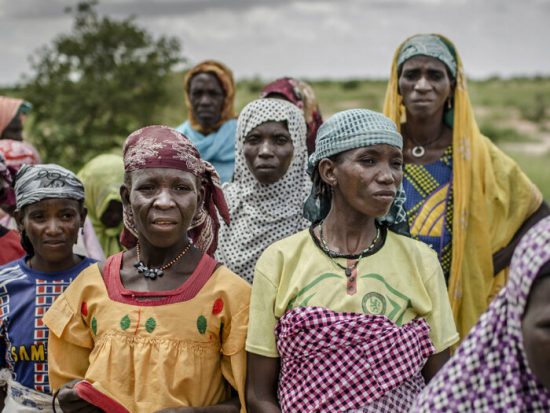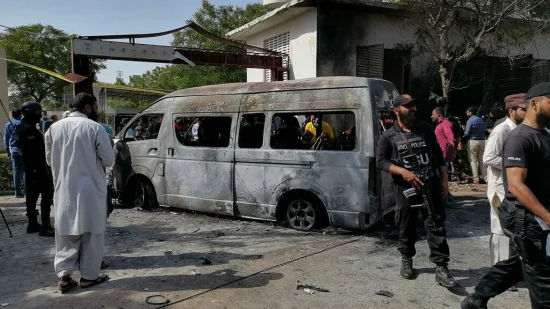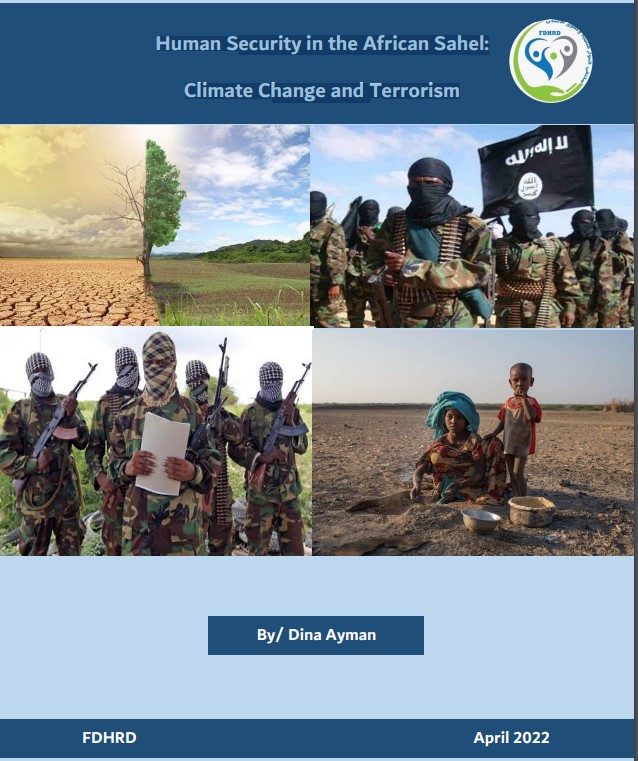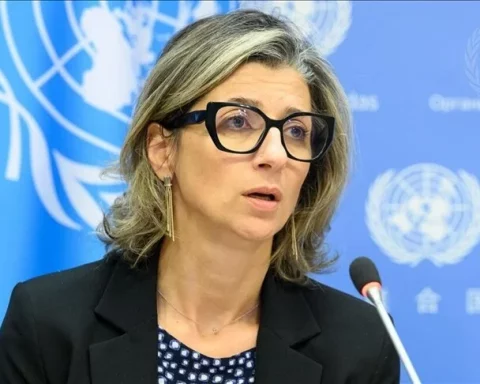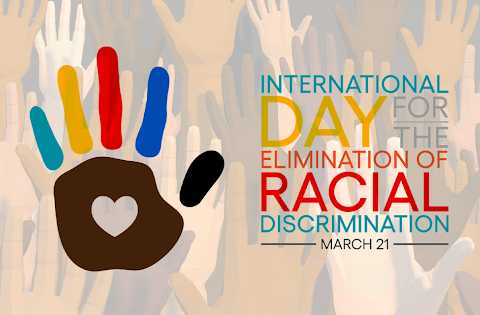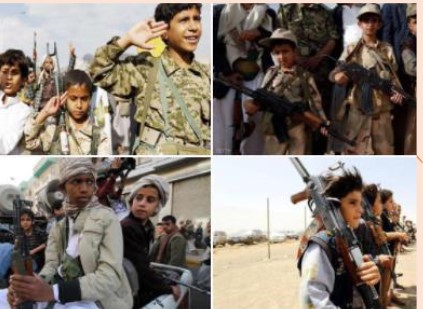Press Release
…………………………………………………………….
Today, Thursday, April 28, 2022, the Counter-Terrorism Watch at the FDHRD issued a new report entitled (Human Security in the African Sahel: Climate Change and Terrorism).
The report emphasized the importance of the concept of human security and the many challenges facing different countries, especially the countries of the African Sahel, in order to maintain human security for individuals in light of the spread of armed groups and harsh climate change.
The report addressed a number of topics, including:
First: The Concept of Human Security: Its Development and Indicators
The concept of human security is a recently used concept, but it has evolved throughout history and has emerged since the end of the Cold War, where human security is not related to the more traditional concepts of security derived from the military analysis of the international relations model. However, human security is considered a hierarchy of human rights according to priorities based on the circumstances of each society and consistent with ideas of fear and need. Thus, it can be understood and clarified through issues related to human rights, such as the lack of food, medicine, care, education and security, as affirmed by all international agreements, including the 1945 United Nations Charter and the 1948 Universal Declaration of Human Rights.
Second: the Repercussions of the Climate Change Crisis
The report said some 166 million people in Africa and Central America needed assistance between 2015 and 2019 due to food emergencies linked to climate change. Also, 80 million people are more at risk of starvation by 2050. With regard to malnutrition, about 1.4 million children will be severely stunted in Africa due to climate in 2050. Agricultural yields have declined by between 4% and 10% globally world over the past thirty years. Fish catches in the tropics have declined at a rate of between 40% and 70%, in light of rising emissions. An additional 2.25 billion people are at risk of contracting dengue fever in Asia, Africa and Europe under alarmingly high emissions scenarios.
The report also referred to some symptoms of climate change that affect human security, including: rising sea levels, coastal erosion, glaciers, and other highly impactful phenomena, and food insecurity.
Third: The impact of armed organizations and climate change on indicators of human security in Africa
The report emphasized that the aggravation of the climate crisis and the impact of climate change led to the deterioration of the security situation in the African Sahel region due to the spread of armed and terrorist groups to plunder its wealth, as this region is rich in many mineral wealth such as gold, uranium and phosphates. Oil wealth has also become a major attraction for the countries of the world, as Chad exports oil about 200,000 barrels per day, and Mali is the third African producer of gold after South Africa and Ghana, in addition to Nigeria, which is the largest oil exporter with a daily production volume of 27 million barrels and reserves. It is 36 billion barrels.
The report stressed that the presence of terrorist groups in the Sahel region is due to the desire to exploit those resources, but there is what makes the situation worse, which is climate change and environmental degradation from which the region suffers.
The report indicated that the violence and challenges facing the region not only lead to conflict, but are related to the reduction of exploitable lands and the unpredictability of the availability of water resources, and that the tensions that exist since ancient times between agricultural and pastoral communities are increasing due to the shrinkage of exploitable lands and the unsustainability of water resources. He also stressed that climate change leads to an increasing complexity of the situation in a region that suffers from underdevelopment, chronic poverty, rampant criminal activity and violence, which actually leads to the fragility of life conditions. The combination of climate change and conflicts predicts an imminent eruption, which leads to the need to bring about a fundamental shift in the approach taken in dealing with the African Sahel region, which would enhance the ability of individuals to withstand climate shocks more

